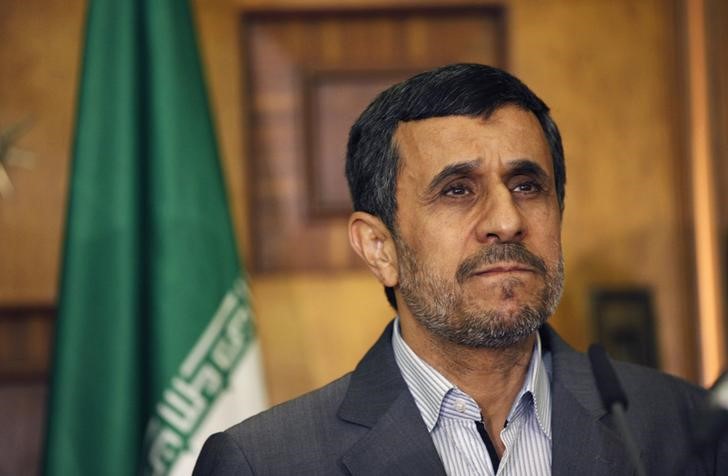BEIRUT (Reuters) - Iran's former president, Mahmoud Ahmadinejad, faces sentences on seven verdicts of misusing billions of dollars in government funds while in office, the public prosecutor at Iran’s Supreme Audit Court said in a newspaper interview published on Sunday.
In one case, dating back to Ahmadinejad’s second term in office between 2009 and 2013, the misused funds amounted to more than two billion dollars, the prosecutor, Fayaz Shojaie, said in his interview with the newspaper Etemaad.
The verdicts have been announced to the parliament, Shojaie said. The Supreme Audit Court operates under the supervision of the Iranian parliament.
It is not clear whether Ahmadinejad was formally tried by the court and is facing sentencing, or whether the Iranian parliament must now follow up on the court's verdicts.
Ahmadinejad gained support among poor and working class Iranians by promising to share the country’s oil wealth with them. Subsidy reforms implemented in his second term were aimed at delivering subsidies to the most needy while cutting their overall cost to the government.
Shojaie said that he did not believe the funds Ahmadinejad allegedly misused could be recovered.
"In the effort of fixing the damages the decision has been issued and finalized. But the damages and harm from his decisions are so big that we don’t have a way to carry it out," Shojaie said. "So what can we do? He in no way has the assets that would cover this amount."
He did not say what would happen if the money could not be recovered from Ahmadinejad. Ahmadinejad could not immediately be reached for comment.
Despite his popularity among some segments of the Iranian population, Ahmadinejad angered hardliners by clashing publicly with Supreme Leader Ayatollah Ali Khamenei on a handful of issues during his second term.
Ahmadinejad submitted his name to run as a candidate in the Iranian presidential election in May, but he was disqualified by the Guardian Council, a governmental body that vets candidates.

Half of the members of the Council are appointed by Khamenei who, without naming Ahmadinejad, hinted that he had advised him not to run.